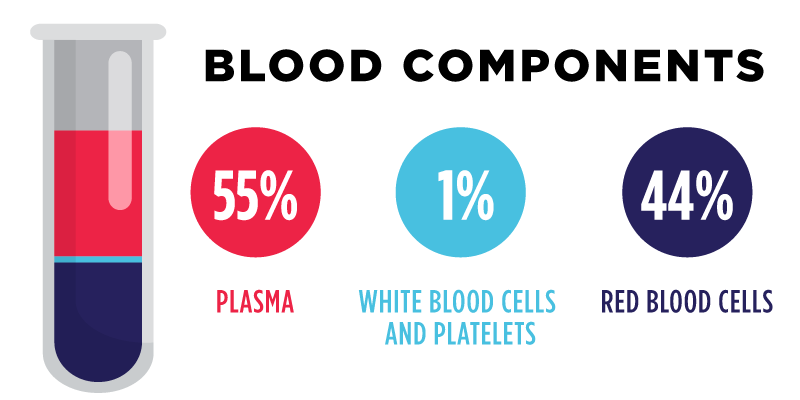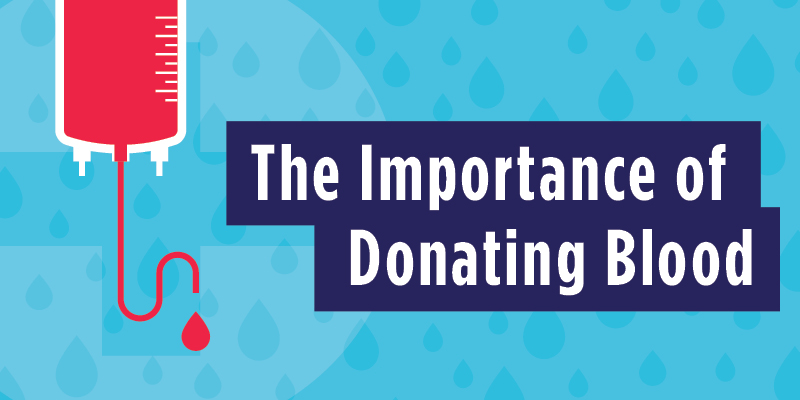Did you know that January is Blood Donor Awareness month? Blood donation is an important, life-saving donation for which there is no substitute. One in seven people will need a blood transfusion at some point in their lifetime, but only one in twenty of those who are eligible will donate. So, why should you donate blood?
Why donate blood?
When people think of blood transfusions, they likely think of life-saving blood transfusions done in emergency trauma situations, like after a car wreck. But blood can actually be broken down into its three components – red blood cells, plasma, and platelets – and used for many different purposes.

- Red blood cells: Red blood cells are the recognizable cells that give blood its distinctive color. They can be used to treat cancer, anemia or iron deficiency, are used during surgery, and also used to treat trauma patients.
- Plasma: Plasma is the liquid part of the blood that carries blood cells, platelets, and proteins through blood vessels. It also contains antibodies for infection and clotting proteins. Plasma transfusions are used in burn and trauma patients, to help with liver failure, and to treat serious infections.
- Platelets: Platelets are small cells that contribute to clots and help stop bleeding. But they are a very small portion of blood – less than 1%. Platelets are often used in cancer patients because chemotherapy depletes platelet levels. They also help recovery in patients with bone marrow transplants, or people who have diseases that prevent the making of platelets. Because platelets make up such a small percentage of blood, they are often donated using a special apheresis machine, where the plasma and red blood cells are returned back to the body.
So that means with the donation of one pint of whole blood, you can actually save more than one life! Even if we never receive a blood transfusion, most of us know someone who will need one. If you are eligible to donate, we recommend that you look into donation locations and options with the Gulf Coast Regional Blood Center at giveblood.org.

